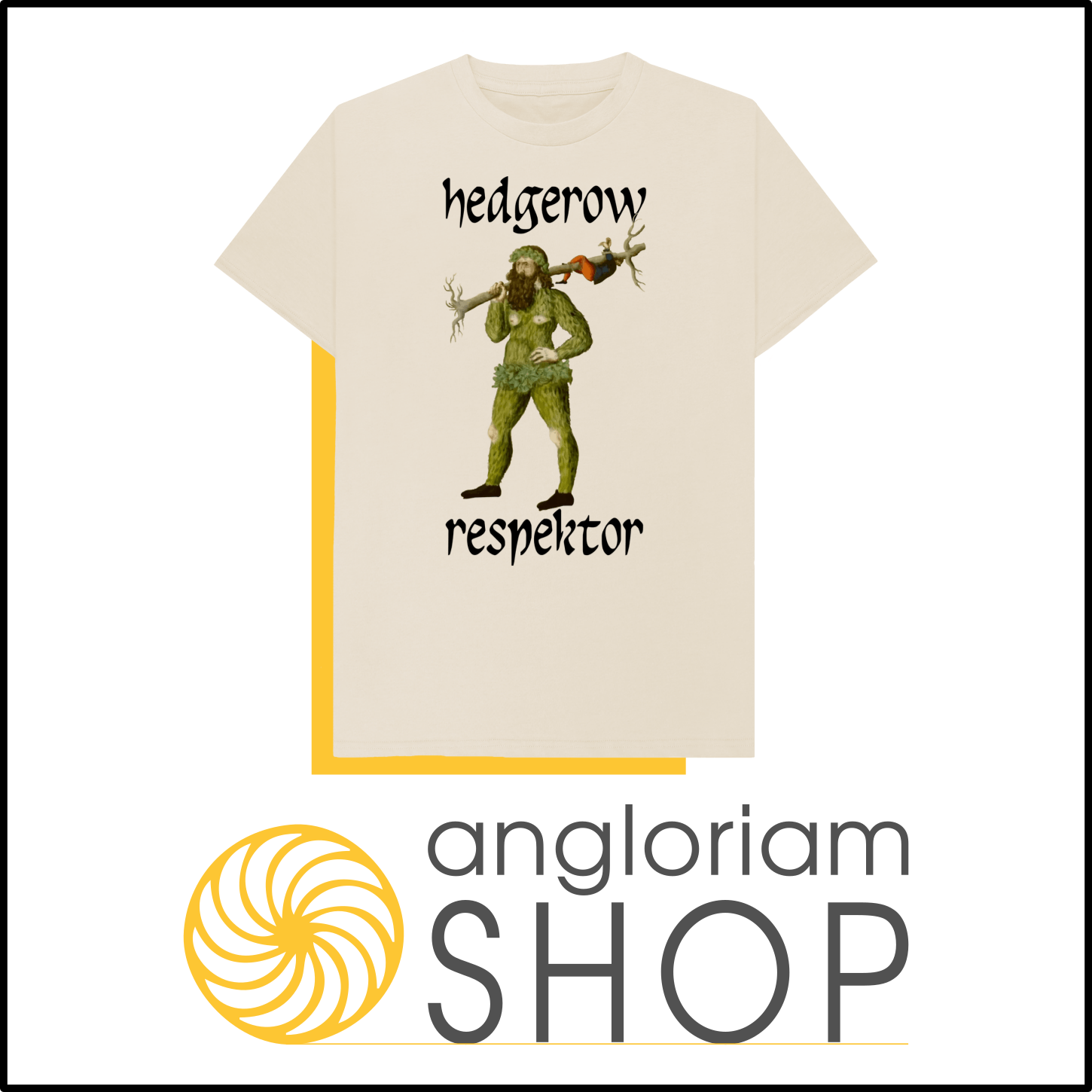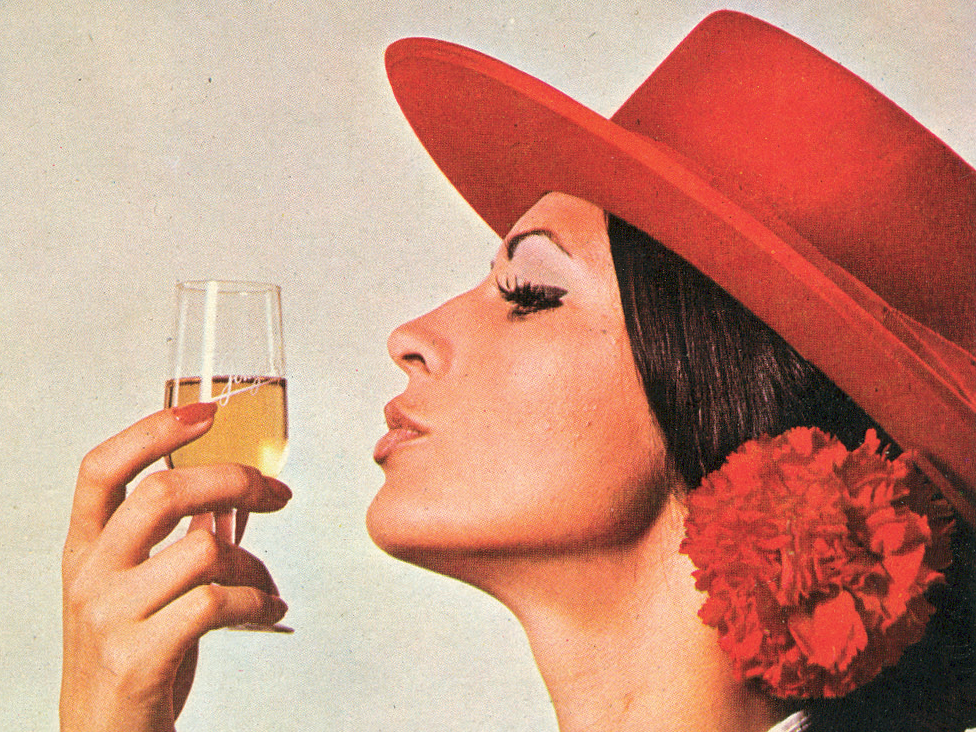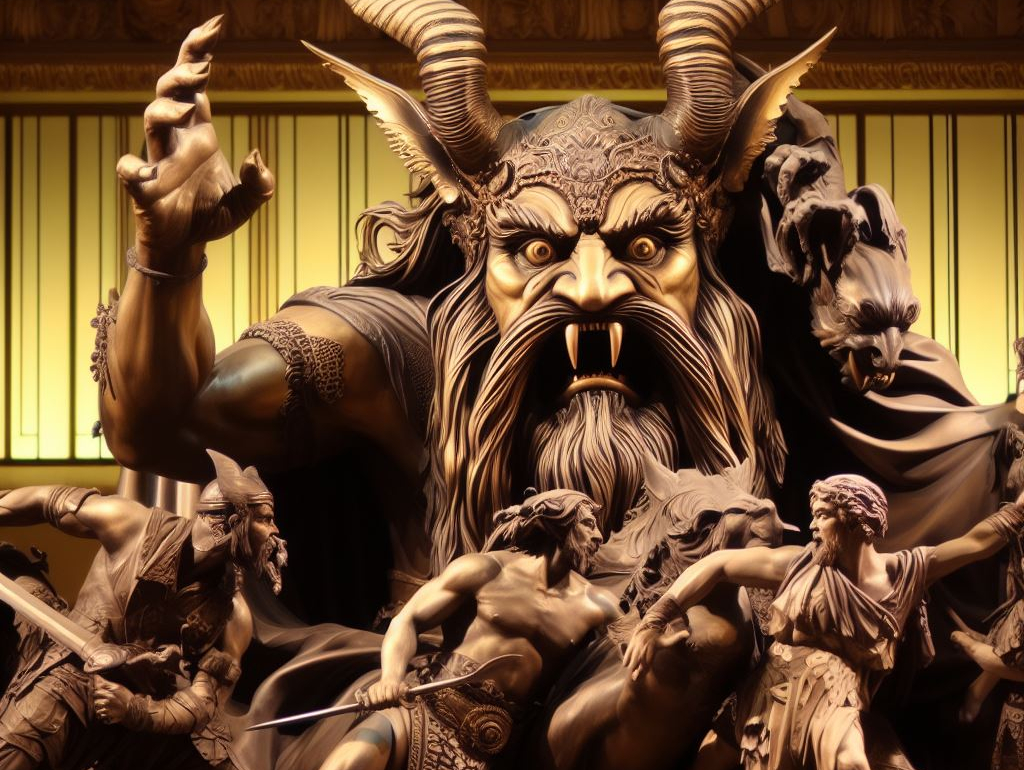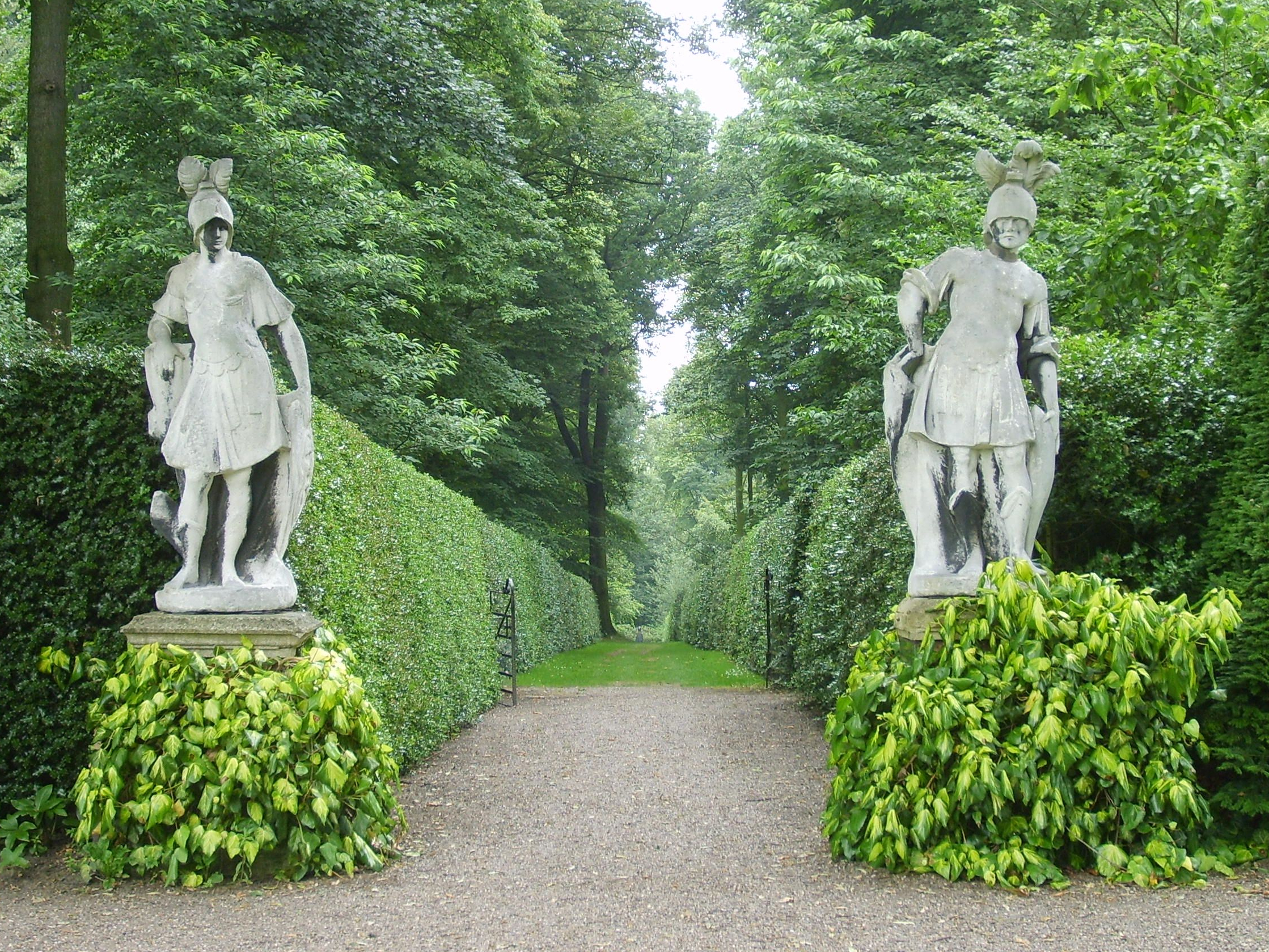Ernst Jünger was a prominent 20th-century German writer and philosopher celebrated for his contributions to literature and thought.
Best remembered for his firsthand narrative of the First World War, Storm of Steel, he remains an enduring figure of intellectual and cultural importance. Join us as we honour this great man with a dinner crafted in tribute to his legacy.
Ernst Jünger (1895–1998) transcended conventional labels throughout his prolific career. Born in Heidelberg, Germany, Jünger’s early years were marked by his participation in the First World War, an experience that profoundly influenced his worldview and literary output. Serving as a soldier on the Western Front, he meticulously documented his wartime experiences, which would later serve as the foundation for In Stahlgewittern (Storm of Steel).
In Storm of Steel, Jünger eschewed conventional narratives of heroism and glory, instead offering a stark and unflinching portrayal of the brutality and chaos of war. Through vivid and evocative prose, he captured the realities of combat, while also delving into deeper existential themes of mortality, camaraderie, and the nature of human existence.
Jünger’s literary contributions extended far beyond the realm of war literature. He explored themes of technology, politics, and individualism, offering incisive critiques of modern society and its discontents. His philosophical writings grappled with questions of freedom, authority, and the relationship between the individual and the state. Throughout his long and illustrious career, Jünger remained steadfast in his commitment to intellectual integrity and artistic excellence.
Flavours of the Fatherland
In crafting a meal to honour Ernst Jünger’s legacy, one is compelled to pay homage not only to his intellectual depth but also to his German heritage and the era in which he lived.
Let us imagine the elegant setting of a wood-panelled dining room steeped in German history. Rich, dark hues envelop the space, while soft candlelight casts a warm glow over the surroundings.
Charming waitresses dressed in traditional dirndls with floral headbands are ready to serve.
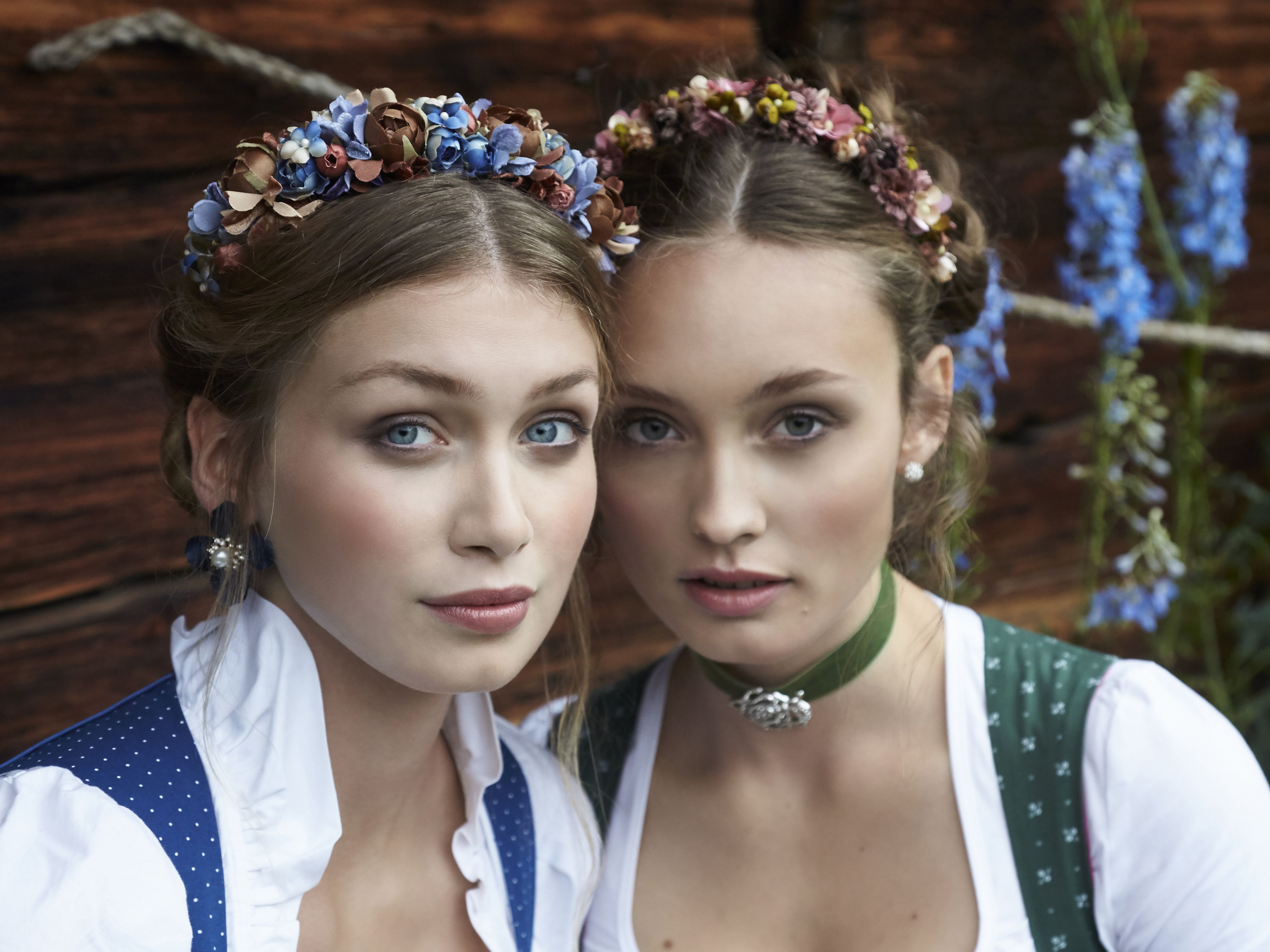
At the heart of the room stands a grand dining table prepared with starched linen and silverware. Crisp white napkins are meticulously folded at each place setting. The scent of freshly cut flowers mingles with the aroma of the dishes simmering in the kitchen.
As the guests take a seat around the table, they are mindful of the legacy of the man they have come to honour.
Apéritif
Raise your glasses in a toast with a glass of crisp, effervescent Riesling, a quintessential German white wine known for its refreshing acidity and vibrant fruit flavours. Accompanying the apéritif is an amuse-bouche of blini topped with crème fraîche and caviar, a nod to the opulent culinary traditions of Europe.
Starter
To commence our honourary dinner, we offer a nod to Jünger’s roots with a selection of traditional German appetizers. We include Obatzda, a creamy Bavarian cheese spread accented with onions and paprika. Accompanying this is a platter of thinly sliced Black Forest ham. Complementing the cheese and ham are freshly baked pretzel rolls.
Main Course
For the main course, we present the hearty Sauerbraten, a tender slow-roasted pot roast marinated in vinegar, spices, and aromatic herbs. Accompanying this centerpiece of the meal are two quintessential German side dishes: Kartoffelsalat, a tangy potato salad enlivened with vinegar and mustard, and Rotkohl, a sweet and tangy red cabbage braised to tender perfection. Together, these dishes invite the guests to indulge in the culinary traditions of the Fatherland.
Dessert
No German-inspired meal would be complete without a cream-filled finale, and so we present the pièce de résistance: Schwarzwälder Kirschtorte, or Black Forest cake. Layers of rich chocolate sponge cake are interspersed with clouds of whipped cream and tart cherries.
As guests savour each course, they are invited to contemplate German food, culture, and Jünger’s writings.
At the end of the meal, as guests enjoy brandy and cigars, they salute Junger with a cry of “Germany lives and shall never go under!” and are invited to reflect on Jünger’s portrayal of war and its profound impact on the human spirit in Storm of Steel.
Storm of Steel
Storm of Steel provides a visceral and unflinching account of the experience of trench warfare during the First World War. Jünger vividly describes the sensory onslaught of battle, capturing the sights, sounds, and smells of the battlefield; and the lethality of modern weaponry and the mechanized horrors of the battlefield.
Each paragraph draws readers into the harrowing world of trench warfare with remarkable clarity and immediacy.
“Among the living lay the dead. As we dug ourselves in we found them in layers stacked one upon the top of another. One company after another had been shoved into the drum-fire and steadily annihilated. The corpses were covered with the masses of soil turned up by the shells, and the next company advanced in the place of the fallen”
“Towards mid-day the artillery fire rose to a wild dance. It broke round us without a pause. [Birds] sat peacefully above the swathes of smoke in the shattered branches, and in the brief intervals of silence we could hear their love-calls and untroubled songs.”
Jünger grapples with the tension between the individual experiences of soldiers and their collective national identity. He portrays moments of intense camaraderie and solidarity among comrades, tempered by the harsh realities of duty and discipline.
“When once it is no longer possible to understand how a man gives his life for his country–and the time will come–then all is over with that faith also, and the idea of the Fatherland is dead; and then, perhaps, we shall be envied, as we envy the saints their inward and irresistible strength.”
“Unknown perhaps to yourself, there is someone within you who keeps you to your post by the power of two mighty spells : Duty and Honour. You know that this is your place in the battle, and that a whole people relies on you to do your job.”
Such passages highlight the duality of the soldier’s experience, as he navigates between his personal motivations and the imperative of serving his country.
Jünger offers a nuanced exploration of heroism in the context of war, challenging conventional notions of valour and sacrifice. He depicts moments of extraordinary bravery and selflessness, as well as instances of fear, doubt, and moral ambiguity.
“Only a lieutenant and a sergeant got through the wire. The officer, though he wore a steel shirt under his uniform, was accounted for by a bullet point-blank from Reinhardt’s revolver that drove a whole steel plate into his body. The sergeant had both legs nearly torn off by a bomb ; nevertheless, he clenched his short pipe between his teeth with stoical calm until he died. Here, as always, whenever we encountered the English we encountered brave men.”
“Even if ten out of twelve men had fallen, the two survivors would surely meet over a glass on their first evening off, and drink a silent toast to their comrades, and jestingly talk over their shared experiences. There was in these men a quality of both emphasized the savagery of war and transfigured it at the same time: an objective relish for danger, the chevaleresque urge to prevail in battle.”
Jünger’s conception of heroism emphasises inner resolve and moral courage, transcending mere acts of physical prowess or bravado.
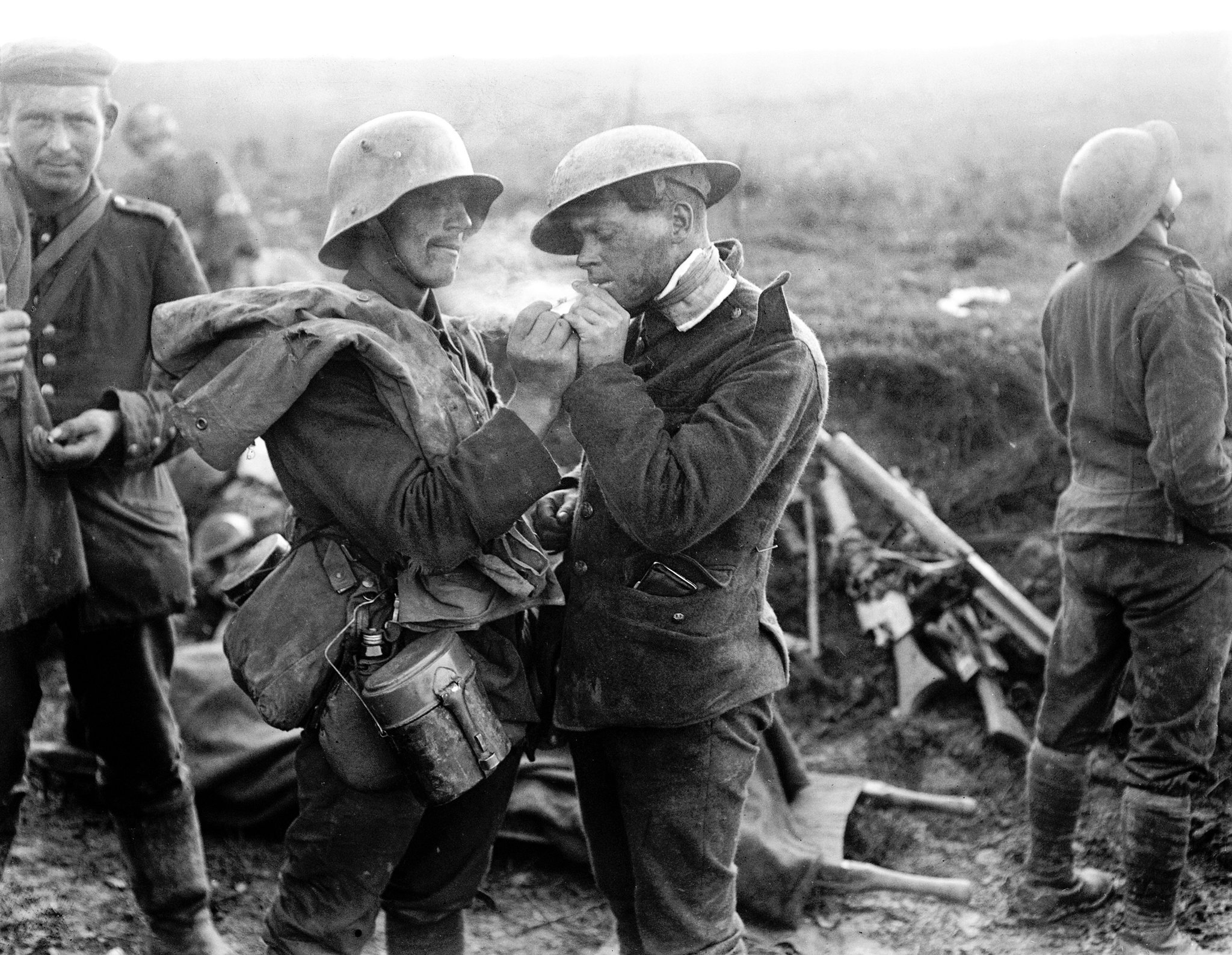
Vitality amidst the carnage
Jünger’s firsthand account of the First World War in Storm of Steel provides a window into his complex relationship with the existential realities of war. While many perceive war as a descent into chaos and destruction, Jünger paradoxically finds a heightened sense of existence amidst the turmoil of battle. He thrives in the milieu, and writes of moments where the intensity of combat brought him a sense of vitality and transcendence amidst the carnage.
“What is more sublime than to face death at the head of a hundred men? Such a one will never find obedience fail him, for courage runs through the ranks like wine.”
Jünger had a profound admiration for personal bravery and courage, which he often highlighted in his writings. He saw acts of bravery as manifestations of inner strength and resilience, qualities that he esteemed highly. Jünger himself exhibited remarkable courage during his time as a soldier in World War I, and he was deeply impressed by the bravery of his comrades.
“I have always pitied the coward, in whom battle arouses a series of hellish tortures, while the spirit of the brave man merely rises the higher to meet a chain of exciting experiences.”
“Those fine qualities which had raised the German race to greatness leapt up once more in dazzling flame and then slowly went out in a sea of mud and blood.”
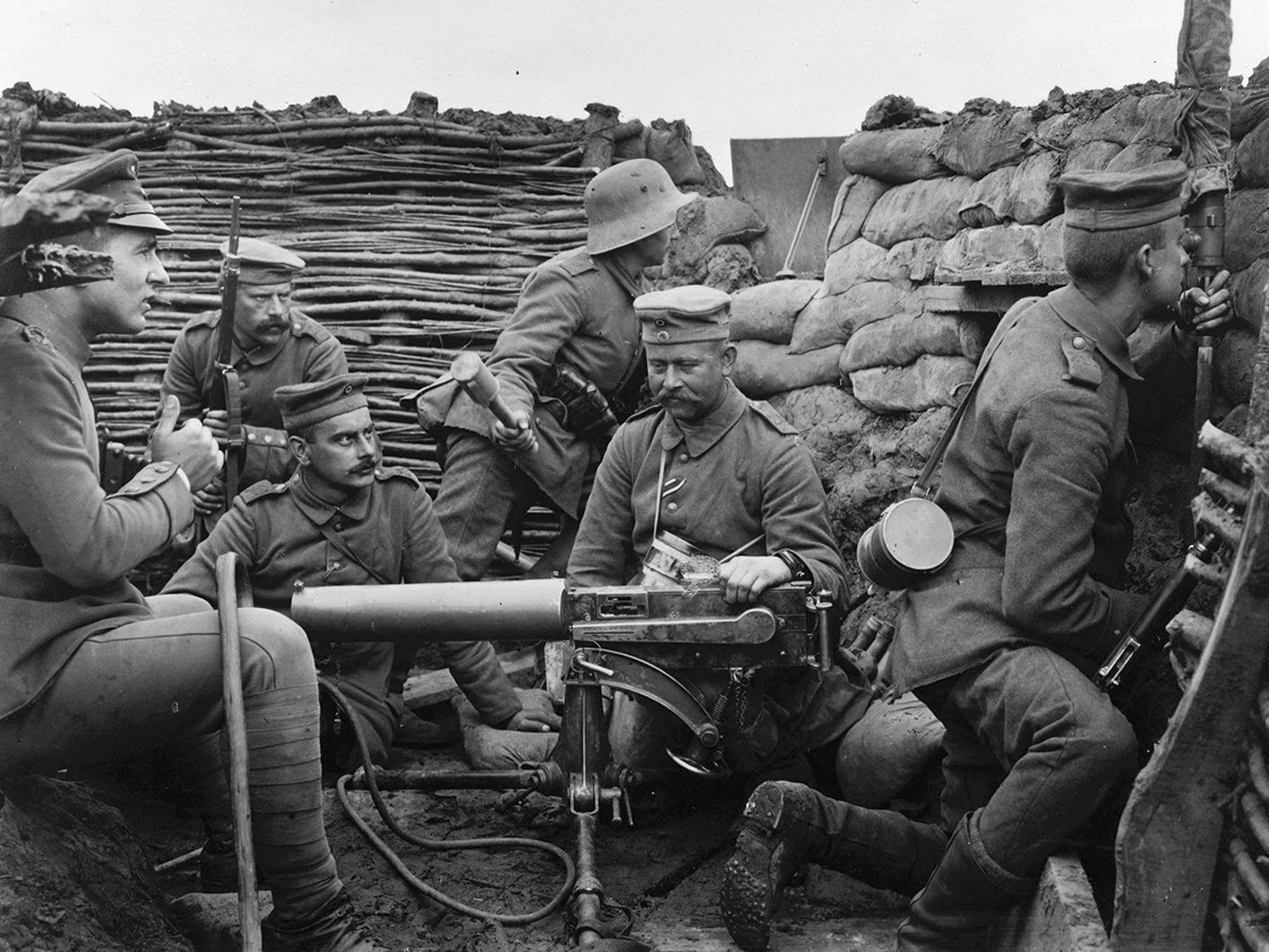
Jünger writes about soldiers who displayed incredible bravery in the heat of battle, risking their lives to protect their comrades or achieve strategic objectives. He often describes these moments with reverence, emphasizing the courage and determination of the individuals involved.
“And yet, where would be the success of war if it were not for individuals whom the thrill of action intoxicates and hurls forward with an impetus not to be resisted?”
Acknowledging war as a crucible of existential intensity reflects Jünger’s belief in the transformative power of adversity and struggle. Through the crucible of combat, he suggests, individuals are confronted with the fundamental truths of existence, stripped bare of the illusions and distractions of everyday life.
Jünger’s broader body of work delves further into these existential themes. In his philosophical writings, such as The Worker and The Forest Passage he explores the individual’s search for authenticity in the face of oppressive societal pressures.
The Second World War | Leon Degrelle's Eastern Front
While Ernst Jünger's Storm of Steel offers a gripping portrayal of the First World War, Léon Degrelle's Eastern Front provides a compelling account of the Second World War from a different vantage point. Degrelle, a Belgian Walloon who volunteered to fight on the Eastern Front as part of the Waffen-SS, offers readers a firsthand glimpse into the brutal realities of combat on the Eastern Front. While Storm of Steel and Eastern Front represent different conflicts and perspectives, they share a common humanity in their portrayal of the human experience amidst the chaos and carnage of war.
Jünger the anarch
Throughout his literary career, Jünger explored themes of rebellion, defiance, and non-conformity, often depicting individuals who asserted their autonomy. His novels, essays, and diaries are filled with characters who embody this spirit, challenging the status quo and forging their own paths in a world rife with constraint and social strictures.
Witnessing first-hand the failed political experiments of the 20th century, Ernst Jünger came to identify himself with his concept of the anarch, which can be understood as a response to the failings of modernity, as well as an expression of his commitment to individual freedom and self-determination.
To Jünger, the anarch should not necessarily seek to overthrow existing power structures or advocate for revolutionary change. Instead, the anarch should focus on pursuing personal sovereignty and creative self-expression as ends in themselves. He came to believe that true freedom could only be achieved through the rejection of external authority and the cultivation of inner strength (like he found on the battlefield) and independence.
The anarch is guided by his own values and beliefs rather than conforming to external dictates or social norms, which might be wholly self-destructive or driven by the promise of external rewards or recognition. This is a more egalitarian idea than, say, the aristocrat as envisioned by Julius Evola. Evola’s concept of the aristocrat is inherently hierarchical, rooted in the idea of a natural aristocracy and cosmic order. The aristocrat embodies higher ideals and values, serving as a beacon of spiritual enlightenment for society. In contrast, Jünger’s anarch is more focused on the individual’s confrontation with the human condition. While both concepts address questions of meaning and purpose, they do so from different philosophical perspectives. However, it is clear that both the anarch and the Evolian aristocrat transcend social and political structures. Both Evola and Jünger were critical of the modern world and its emphasis on materialism, consumerism, and mass conformity. The aristocrat and the anarch represent alternative visions of human excellence that stand in opposition to the prevailing trends of modernity, seeking to preserve and cultivate traditional values and virtues in a rapidly changing world.
Guided by a sense of inner nobility and honour, the anarch remains steadfast in their adherence to their own beliefs, maintaining a sense of integrity in their actions. By maintaining a healthy degree of scepticism and independence of thought, the anarch may find they are better equipped to navigate social decay, relying on their own principles and resourcefulness rather than depending solely on external authorities or institutions.
Ernst Jünger in the modern world
Few accounts of war match the power of Jünger’s writing in Storm of Steel. His ability to convey the sights, sounds, and emotions of combat transports readers to the front lines, allowing them to glimpse the impact of war on the human psyche.
Jünger’s prose is marked by its honesty and candour as he confronts the horrors of war with unflinching realism. From the chaos and carnage of the battlefield to the moments of camaraderie and solidarity among soldiers, Storm of Steel offers a multifaceted portrait of the human condition in extremis.
Ernst Jünger’s wartime experiences played a significant role in shaping his evolution towards embracing the concept of the anarch. Influenced by thinkers such as Friedrich Nietzsche and Max Stirner, he developed a nuanced critique of hierarchical structures and a vision of independence grounded in existential authenticity.
Jünger’s philosophy of personal freedom and self-determination resonates deeply with contemporary concerns about the ineptitude and short-termism of modern governance. The anarch offers a pathway to resilience, adaptability, and empowerment in the face of uncertainty and change.
Jünger challenges us to reexamine our relationship with authority and tradition, encouraging a spirit of critical inquiry. His life serves as a testament to the power of continual intellectual curiosity.
Throughout his prolific literary career, Jünger delved into a wide range of subjects, from philosophy and politics to science and art. His writings reflect a profound engagement with the complexities of the human condition, offering insights that remain relevant and thought-provoking in our own time.
We can draw inspiration from Jünger’s commitment to living authentically and freely in the modern world, guided by our own principles and convictions. His legacy reminds us of the enduring value of individual autonomy and the importance of always questioning prevailing assumptions.
